How to Trim Your Bird's Nails
Updated on 05/26/24
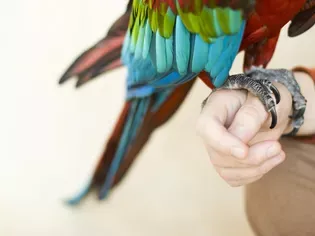
The Ultimate Guide to Trimming Your Bird's Nails: A Step-by-Step Guide to Keeping Your Feathered Friend Comfortable
As caring bird owners, providing our feathered companions with the best possible care is paramount. An often-overlooked aspect of bird care is nail trimming, yet it's essential for their health and well-being. Overgrown nails can lead to discomfort, pain, and even health problems.
This comprehensive guide will equip you with everything you need to know about trimming your bird's nails safely and effectively. From understanding their anatomy to choosing the right tools and techniques, we'll cover it all.
Nail Anatomy: Understanding Your Bird's Nails
Birds' nails, like ours, are made of keratin, a tough, fibrous protein. However, unlike our nails, their nails are tubular, forming a cone-shaped structure around a blood vessel called the quick. The quick is filled with nerves and blood vessels, making it very sensitive.
Why Trimming Nails is Important
* Comfort: Overgrown nails can curl and press into the bird's footpads, causing pain and discomfort.
* Health: Untrimmed nails can grow into the bird's skin, leading to infections and other health issues.
* Mobility: Long nails can interfere with perching, climbing, and overall movement.
* Safety: Sharp nails can injure both birds and handlers.
Choosing the Right Nail Clippers
Selecting the appropriate nail clippers is crucial. Guillotine-style clippers are the most commonly used due to their precision and ease of use. Here are some factors to consider when choosing:
* Size: Clippers should be sized to fit the bird's nail size.
* Shape: Guillotine clippers come in straight and curved blades. Curved blades offer more control for cutting around the quick.
* Sharpness: Sharp blades ensure a clean, precise cut without tearing or crushing the nail.
Step-by-Step Trimming Process
Materials:
* Nail clippers
* Towel or gauze
* Styptic powder (in case of accidents)
Instructions:
1. Restrain the Bird: Gently wrap your bird in a towel or gauze to restrain it and prevent sudden movements.
2. Identify the Quick: Locate the quick by gently pressing on the nail. The quick will appear as a pink or black spot.
3. Trim the Nail: Hold the clippers parallel to the nail and make a single, clean cut. Avoid cutting too close to the quick.
4. Check for Bleeding: If you accidentally cut the quick, apply styptic powder to stop the bleeding.
5. File the Nails: Use a fine-grit file to smooth any sharp edges or burrs.
Tips for a Successful Trimming Experience
* Start Early: Start trimming your bird's nails as early as possible to accustom them to the process.
* Be Patient: Trimming nails can be challenging initially. Stay calm and patient throughout the process.
* Reward Your Bird: Offer your bird a treat or praise after each successful trim.
* Seek Professional Help: If you're uncomfortable or unsure about trimming your bird's nails, consult a veterinarian or experienced bird handler.
Example Scenarios
* Canary: Canaries have small, round nails. Use small, guillotine-style clippers with curved blades.
* Parakeet: Parakeets have longer, pointed nails. Use medium-sized clippers with straight blades.
* Cockatiel: Cockatiels have thick, strong nails. Use large clippers with sharp blades to ensure a clean cut.
Conclusion
Trimming your bird's nails is an essential aspect of their care. By following the steps outlined in this guide, you can keep your feathered friend comfortable, healthy, and safe. Remember, trimming nails regularly is a small investment in your bird's long-term well-being. If you have any concerns or questions, don't hesitate to consult a veterinarian for professional advice.
Explore More Pets

Small Bird Breeds
Gloster Canary: Bird Species Profile

Small Bird Breeds
Java Finch: Bird Species Profile

Small Bird Breeds
Zebra Finch (Chestnut-Eared Finch): Bird Species Profile
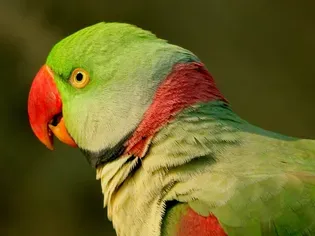
Small Bird Breeds
Alexandrine Parakeet: Species Characteristics & Care
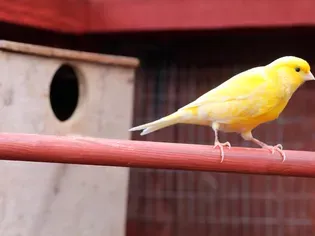
Small Bird Breeds
Canary: Bird Species Profile
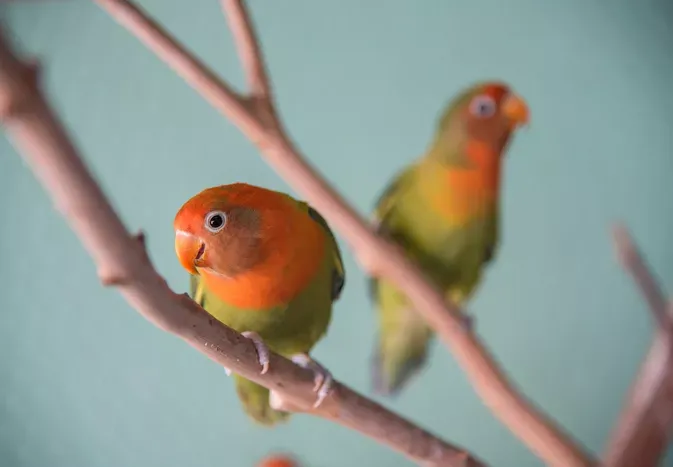
Small Bird Breeds
Lovebird (Pocket Parrot) Species Profile
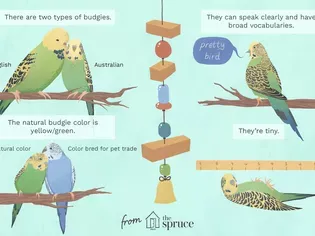
Small Bird Breeds
A Guide to Pet Budgie Birds
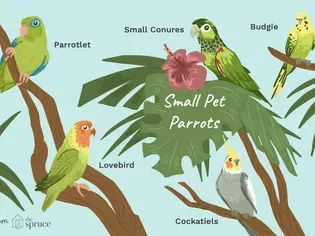
Small Bird Breeds
Types of Small Parrots
